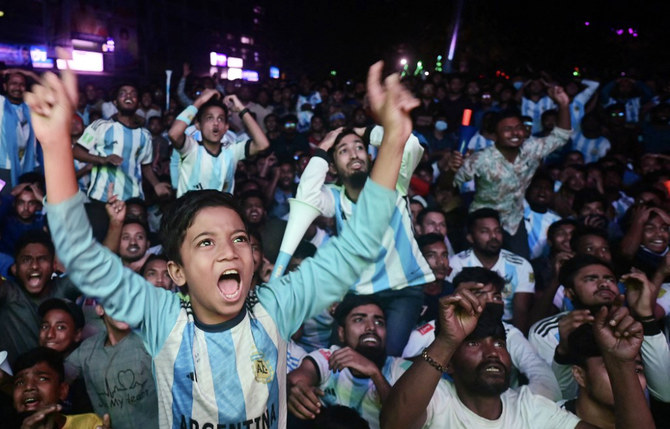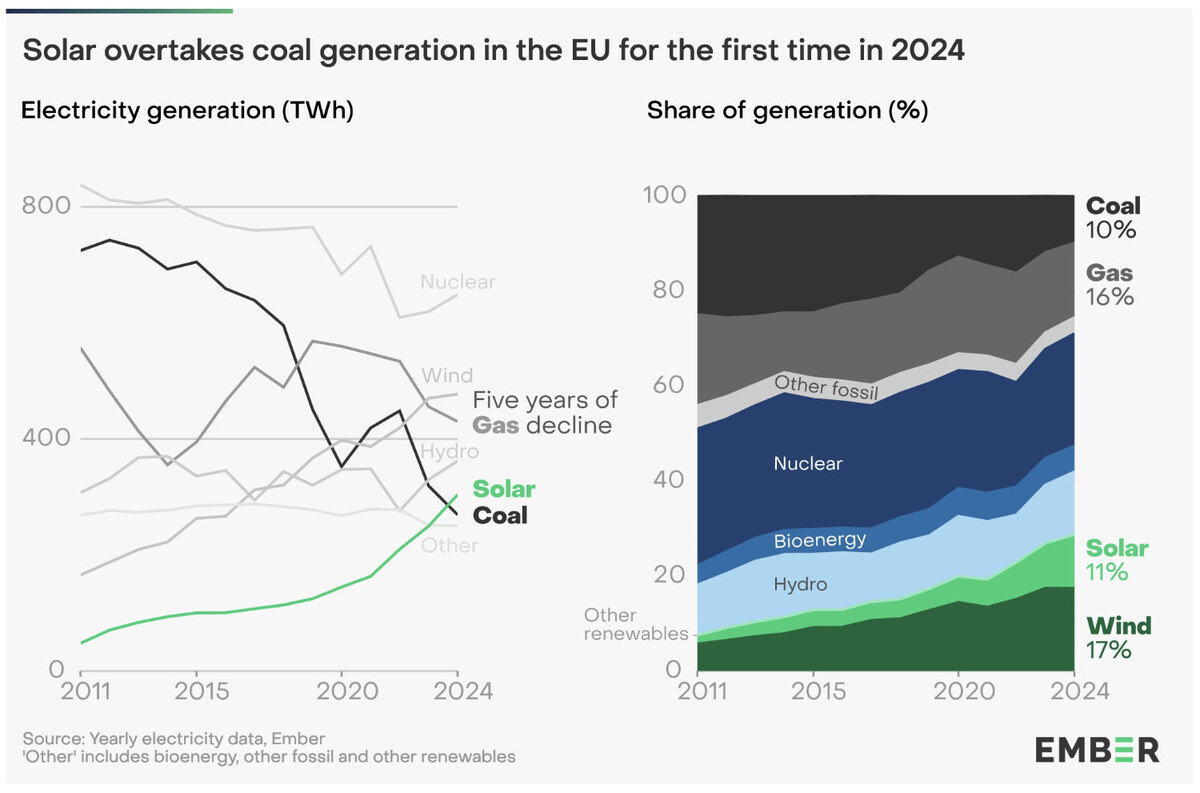DHAKA: When the outpouring of Bangladeshi support for Argentina went viral during the Qatar World Cup, it brought closer not only football fans in the two countries but also their governments, which are now planning to establish a new bond after a four-decade lull.
Bangladesh’s love for the Argentina team dates back to the 1986 World Cup in Mexico, the first world cup to be screened in color in the South Asian country. Argentina won the tournament with a historic performance of the legendary Diego Maradona, its then captain.
It was Maradona who turned cricket-mad Bangladeshis into Argentine football fans and who had smitten them in a way no other player ever had. It took years for another footballer to win Bangladeshi hearts, and it was also a superstar Argentinian captain: Lionel Messi.

Bangladeshi football fans react as they watch the Qatar 2022 World Cup Group C football match between Poland and Argentina on a big screen in Dhaka on Dec. 1, 2022. (AFP)
As Argentina were proceeding to their 2022 World Cup win, Bangladeshi support for Messi to reach his crowning achievement, a FIFA World Cup trophy, spiked with every game.
Despite chilly winter temperatures, hundreds of thousands of fans in Dhaka and other Bangladeshi cities would gather, waving Argentina flags and wearing the team’s sky blue and white jersey to watch matches on giant screens set up at key squares, roads and football grounds.
Their cheering did not go unnoticed, and after images of Bangladeshi celebrations for the team’s victories at Qatar 2022 went viral, La Albiceleste themselves took to social media to say “Thank you for supporting our team!! You are crazy like us!”
The two countries, thousands of miles away, have little in common, but this year’s World Cup brought them closer together.
As Bangladeshi support for Argentina made headlines worldwide, Argentinians — who traditionally do not watch cricket — took to social media to support the Bangladesh team in its ODI series against India.
And a political development came soon as well: Argentine Foreign Minister Santiago Cafiero announced that the South American nation will renew its ties with Bangladesh and in 2023 will reopen its embassy in Dhaka.
Bangladesh has an ambassador to Argentina in Brazil, while Argentina maintains its ambassador to Bangladesh resident in New Delhi. There has been no direct diplomatic representation since Buenos Aires closed its mission in 1978, only six years after establishing official ties with Dhaka.
Bangladeshi Foreign Minister A.K. Abdul Momen announced on Thursday that Cafiero is expected to visit Dhaka in March.
“I received a mail this morning about the Argentine foreign minister traveling to Bangladesh,” Momen said during an event in Dhaka, adding that the Argentine team will be also invited.
“We want to shower Messi with the utmost hospitality of our country.”
The news has already sparked enthusiasm in the Bangladeshi football community.
Mohammad Aslam, former captain and striker of the country’s national football team, said the visit would be a “historic moment” that could be a game changer for the country that is currently 192nd in the FIFA Men’s World Ranking.
“If Messi comes here along with the Argentine team, it will…boost football in Bangladesh…For attracting the new generation to football, this visit will create momentum,” he told Arab News, as he already envisioned cooperation involving Argentinian-run training at Bangladesh Krira Shikkha Protisthan, the state-run sports school that has groomed the country’s most iconic athletes.
“If we can appoint the chief football coach from Argentina, under his supervision, our boys will grow and learn the techniques and tactics of football, which will definitely help them play better football. We have all infrastructure there, but finding a competent coach is always difficult.”
Abdul Salam Murshedi, lawmaker and senior vice president of the Bangladesh Football Federation, saw also other aspects of the unexpected mutual attention that the South American and South Asian nations have lately poured on each other.
“With this sports diplomacy, a new horizon of bilateral relations will be explored, which will boost cooperation in terms of business, politics and diplomacy also. I think with this world cup, we can begin a new level of relationship with Argentina,” he said, adding that it also has potential for Bangladesh’s top export industry: textiles.
Bangladesh is already a global major producer of sportswear and a supplier for international brands such as Nike, Adidas and Puma.
“With this visit, we can also explore the opportunities of exporting Argentine football fan jerseys to Argentina since we have all the facilities here as a leading garment exporter to the world market,” Murshedi told Arab News.
“I will say this visit will create a revival of football in our country, which will also boost trade.”





























